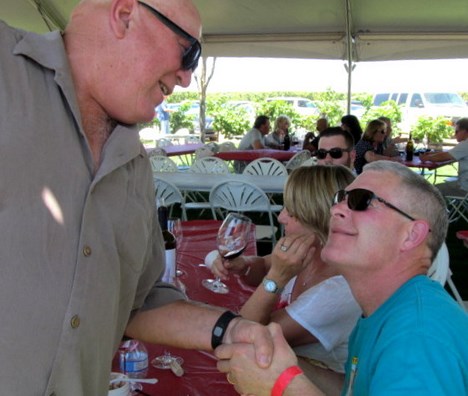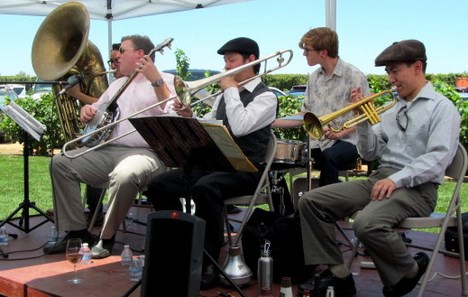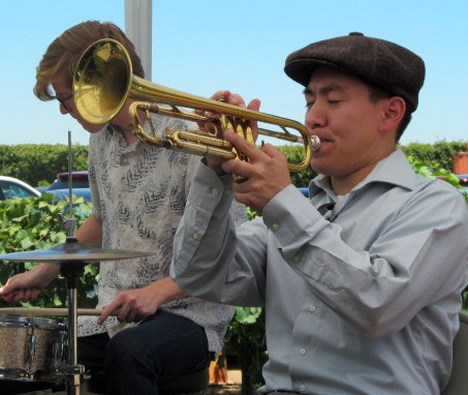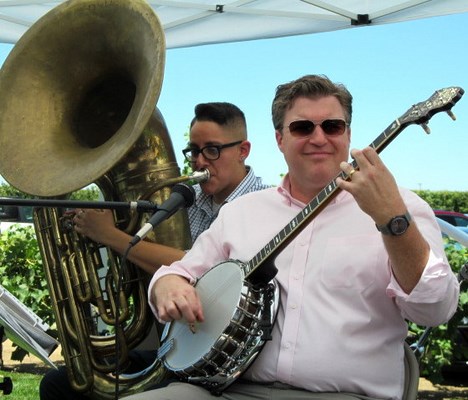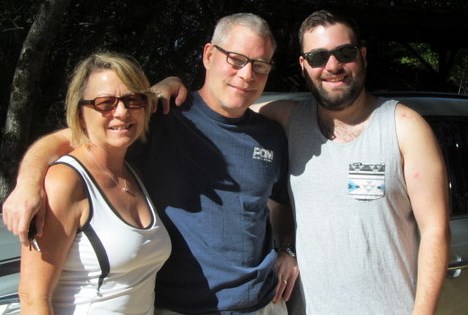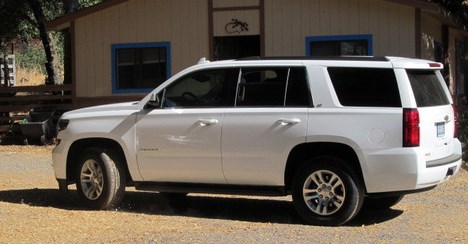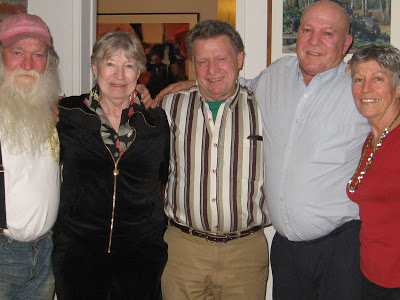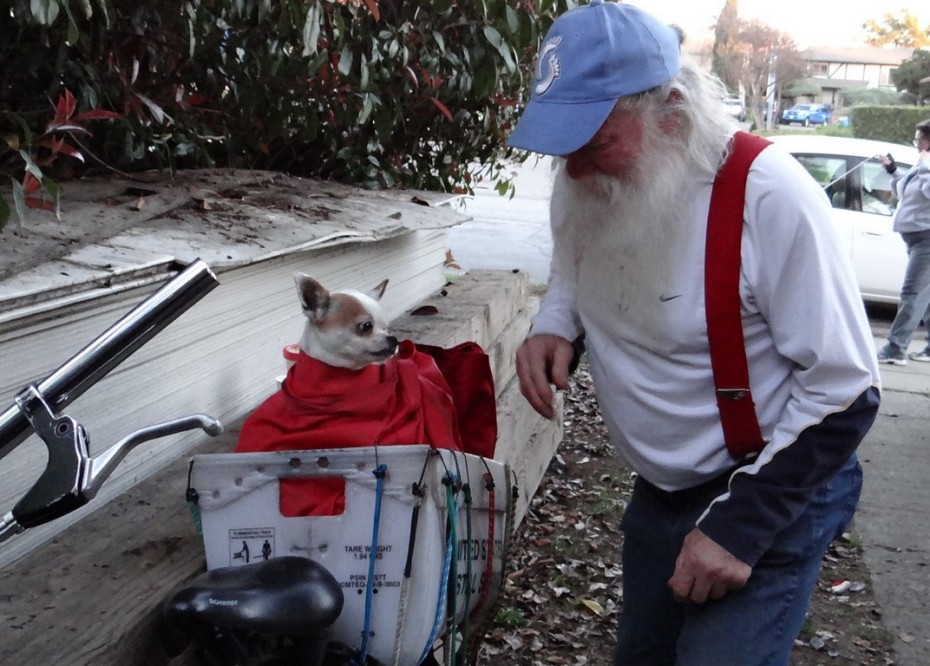
Continuing the saga of my homeless brother Norman, here he is with
his little dog and his bike. He lost the dog the last time he was
arrested. He had taken over a condemned house. With a house address, he
was able to get a bank account and begin collecting his social security
which amounted to about $1,200 a month. He dug a new sewer line, fixed
leaks on the roof, put in new flooring, a toilet and new plumbing. Over
time, he put in a washer and dryer and television set. He made friends
with the neighbors. He lived in this place for three years and invited a
couple other homeless guys to live there too. Then, he decided to
plant a garden with veggies and marijuana. A neighbor reported on him
and the police came to “his house”, knocked on the door, arrested him
for growing marijuana. (The other two guys vacated the minute the cops
came to the door.)The cops would not let him secure the house nor make
arrangements for his dog. Directly to jail.
In court, Norman could make a deal with the D.A. but he refuses. “If
you do, they own you. They can just pick you up at any time and slap you
back in jail for looking cross-eyed at someone. Probation for me is
useless. I can’t get anywhere on time. I don’t have a watch or a
calendar. I often don’t know the time of day or what day it is.”
While in jail, another brother picked up his mail and deposited his
checks and paid for his storage building. Without family help, he would
have had to reapply for Social Security all over again, wait for it
to clear, from 6 weeks to 3 months. When Norman returned to “his
house”, the place had been stripped of everything he owned. His dog
gone.
He made his way back to a homeless camping area under the freeway in
San Leandro. Someone told him about a mobile home park in Hayward with
vacancies. It was a run-down place. He walked up to apply. The woman
took one look at him and turned the sign around and said she had no
vacancies. He was scruffy and dirty again, by this time.
Norman is personable. People like him. He makes it a point to
befriend the storekeepers he must depend on so they know he doesn’t
steal. He manages to fend off depression through his Bible and his
faith.
Desperation is the most common ailment of the homeless. It sucks away
any sense of well-being, hope or strength. It is naive to think that
homeless people, single men especially, who can’t afford housing and
basic necessities, should somehow be kind and sweet. Homeless people can
be scary, full of tattoos, drunk and offensive, druggies, often
panhandling aggressively. They don’t want to be dirty and stinky and
loathed by all who see them. So called normal people with homes and
traditional lives suffer from depression, drink too much, beat their
wives, and kick the dog. They can live their messy lives behind a
locked door. But the homeless are treated like trash and we expect them
not to be depressed, hungry, angry, criminal and ill?
It kind of reminds me of the old debtors prisons. You go prison for
stealing a loaf of bread because you are hungry. You can’t get out until
someone pays your way out, but you have no money to make that happen.
Are we that medieval? The way some cities treat the homeless, the
answer is yes.
Everything has changed again for Norman. He is in a burnt out house that
he is slowly fixing for the owner using his carpentry skills. He is not
paid. With housing, he is stable, relatively sober and upbeat. The owner
buys materials and arrives with his tools, one or two days a month. The
owner takes the tools with him so no one can steal them while he is
gone. (Not exactly the best neighborhood.)
At this new place, he has something to love-a stray cat; He has a
place safe from young street punks who steal his bike and shove him
around, just because they can. Here guys on the street have offered him
friendship and marijuana. He doesn’t trust them and so far has refused
any involvement with them. It is easier to do when you have a locked
door.
The owner, (to remain unnamed), is a guy Norman built a house for
about 10 years ago when he was homeless but still working for food and
booze. It was before he had his stroke and before he could collect his
social security. This man allows Norman to use his address for his mail
when he is living on the street.
Norman has a throw away phone for which he buys minutes so he can
communicate with me. He has a know it all attitude about some subjects
and can be irritating at times. I listen as patiently as I can.
Currently, his Social Security has been reduced to $780 month.
Social Security is on auto deposit now, and they promptly deducted Obama
Care from his check. He has no way to get to a hospital, or establish a
relationship with a doctor. He recently had a toothache and was in
considerable pain. But, he couldn’t get to a dentist either. His income
and ability to find a place to live is further from reach then ever,
when this house is finished.
His bills are few without rent. He has to pay his storage fee. When
on the street he has electricity there and he can cook in a crock pot
and sit in a chair and write his letters. He has a place to keep his
papers safe and dry. But, no shower, nor place to sleep. Still, it is a
refuge of sorts that the manager of the storage building allows because
he likes Norman.
Meanwhile, he can now shower and keep himself clean. He is stable
and has a sense of purpose. He writes letters to public figures like
Elizabeth Warren, President Obama, Governor Christie. He writes long
letters to major newspapers and sends me copies of them. He is a bit
mentally impaired in that he thinks he is part of the political scene
and is influencing others for a better America with his letters.
I feel he needs to know that he has some self-worth; that his opinion
is worth something to someone. That someone cares about whether he
lives or dies. Isn’t that what we all need? A sense of self-worth with
some dignity?
In one of his letters to the editor, he wrote: “A fox has his den, a
bird has her nest, but the son of man has no place to lay his head.”
So, what is the answer? More tomorrow.
